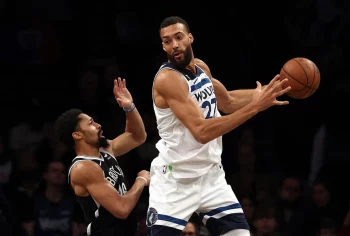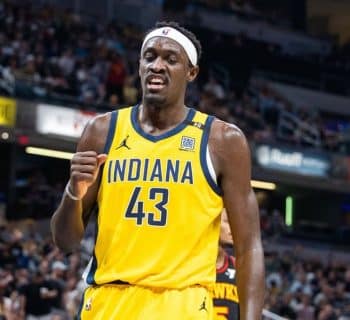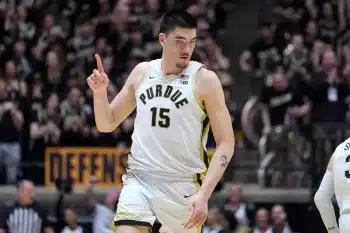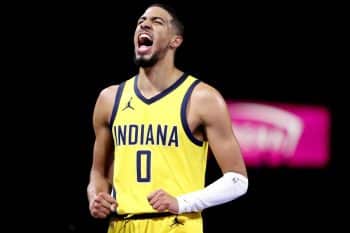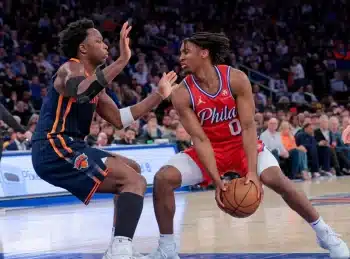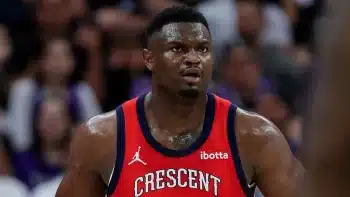NBA
High-Performance Mindfulness: Mental Performance – The NBA’s Best Kept Secret

With the NBA’s latest initiative requiring all 30 teams to have mental health professionals on staff, the door has now been kicked wide open in regards to High-Performance Mindfulness and mind-based holistic methods that support the well-being of the player both on and off the court.
As teams all around the league begin to expand their mental health groups and the scope of their player development departments, the next logical step in player support could be the application of Mental Performance techniques. These techniques zero in on improving mental focus, confidence and present moment awareness.
Before we discuss how NBA, college and international professional teams are implementing these High-Performance Mindfulness modalities, let’s first discuss the foundational mechanics of the player mindset.
Mental Performance techniques, such as meditation and visualization, interface directly with the mind of the athlete for the goal of unlocking the player’s full potential.
The Mind
Science tells us that the mind can operate manage thousands of tasks all at once, doing so while a person is generally unaware that it is happening.
For a player, tending to the mind is vital, because all those hours of practice, training and repetition get logged there. A player’s mind can be like a supercomputer, storing all programs from life’s past experiences there as well.
Mental Clutter
Thoughts and emotions can often prevent a player from remaining present, conscious and in the moment. When this happens, a player’s ability to remain at his or her best can be inhibited. This can ultimately throw a wrench into a player’s efficiency, clarity and mental acuity.
A prime example of this is Nick Anderson’s missed free throws in the 1995 NBA Finals and the troubles that he experienced throughout his career stemming from his performance.
Furthermore, players generally do not have the skills to resolve the mental focus, clarity and confidence issues that can arise on their own.
From the pool of NBA, college, international and national team players that I have observed, below are some of the most common mental challenges.
This being said, when these experiences exist, it is important to employ mental skills training that brings balance to the player. In this way, players are not only training their on-court acumen but also are training their mental skills.
Incorporating mental skills training is something that many player development approaches have historically overlooked.
The Traditional Model
Players have been viewed as purely mechanical commodities as if they were robots repeatedly able to generate top-level performance by the click of a button. Outside of Michael Jordan, Kobe Bryant and maybe a couple of other all-world players, this is simply not the case.
Players are multi-dimensional beings requiring customized, specific support.
Only addressing the physical component (on-court work/strength and conditioning), or only addressing film analysis and scouting, neglects possibly the most important aspect of the athlete – the mind. Of course, the mind directly influences the player’s effectiveness in each one of these areas.
Tweaking the player development model by addressing this aspect may present the best opportunity to date for helping players improve throughout a season. This, begets the question: What is the most effective way to do this when incorporated within the context of an overall team dynamic? It is the integrated approach.
Closing the Gap
The use of mental skills training may be on the verge of breaking out big-time as a way to help players be better versions of themselves.
Training the mind to find focus and clarity can help players across many areas. Once the mind has found focus, this can have the effect of freeing up the player’s ability to lead, communicate and to be more efficient. When integrated within the totality of an existing player development program, this provides a great opportunity to move the dial in overall progression.
Players and coaches are beginning to turn to methods such as meditation, visualization and breath work to help their players feel better.
This past season, the Los Angeles Clippers and their Integrated Player Development Department employed the next level skill-sets of Dr. Laura Wilde, a cutting edge High-Performance Consultant who has been working with professional athletes for years. Dr. Wilde is a pioneer in this space. She works to promote player wellbeing through mental performance.
The Utah Jazz rely on Graham Betchart’s expertise as a long-time Elite Mental Skills Coach to star NBA players as a way to support their players both on and off the court.
As awareness around this space continues to build and these practices become common knowledge for helping players, roles for the High-Performance coaches who administer these Mental Performance Player Development based techniques will become more defined.
For now, the most effective implementation of this type of specialist is likely as an embedded, trusted resource within an overall coaching staff or player development department.
The bottom line: The trend for training the mind is growing, and so too are the innovative and proven ways for producing positive change for players.
Mindfulness and other similar types of methods are now coming on-line as player development secret weapons in facilitating big-time change for players.
